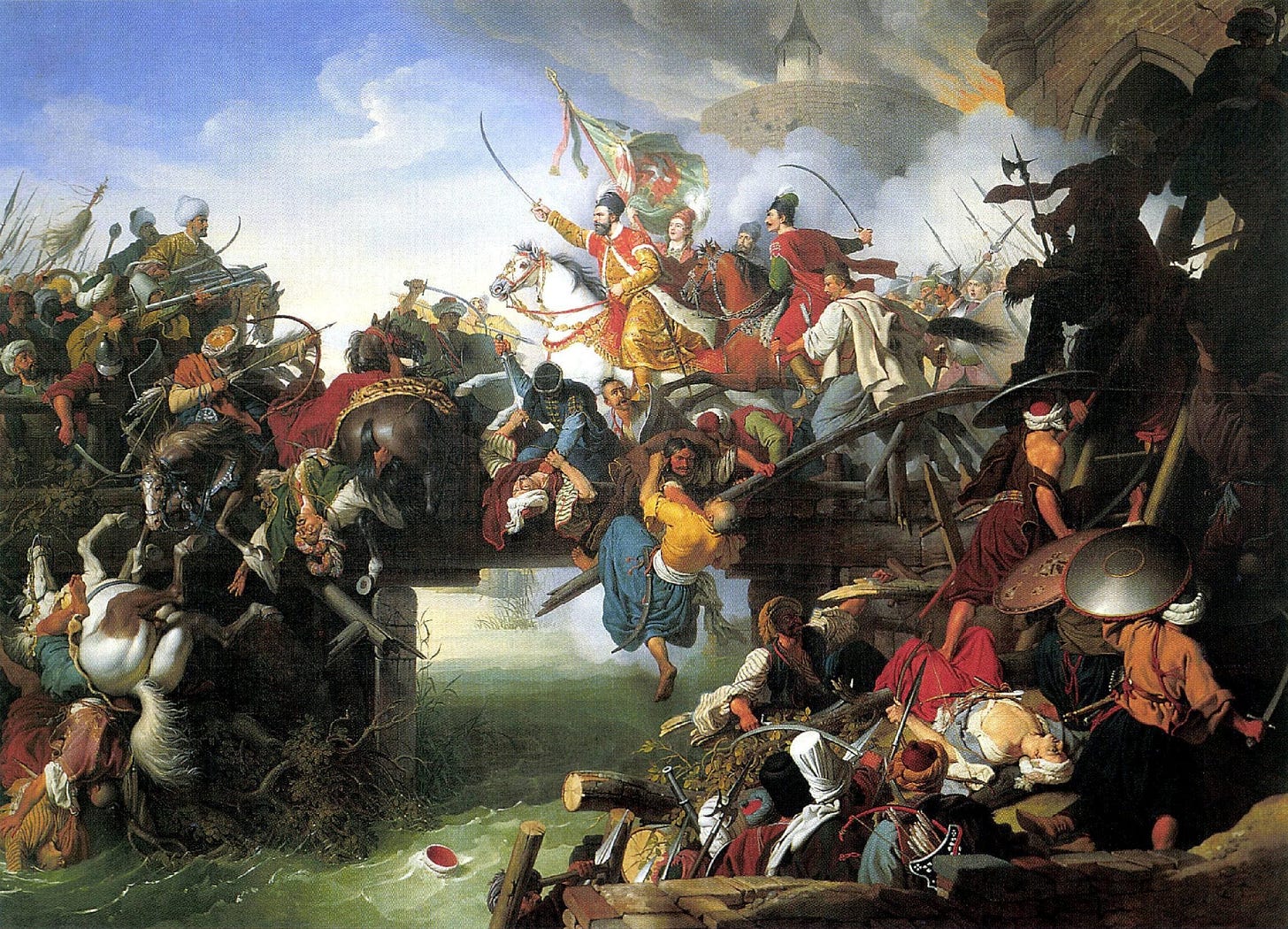TODAY IN HISTORY
September 8, 617: Rebels led by the Duke of Tang, Li Yuan, defeat an imperial Sui Dynasty army by luring it out of the city of Huoyi in northern China. The victory left Li Yuan preeminent among the many nobles who were in rebellion against the Sui, and the following June he had himself crowned Emperor Gaozu of the new Tang Dynasty. The Tang ruled China for almost 300 years, from 618 to 907, with a brief 690-705 interregnum. Nowadays the Tang period is generally regarded as a “golden age” in terms of the flourishing of Chinese civilization and the expansion of China’s political and cultural hegemony.
September 8, 1566: An Ottoman siege of the Hungarian city of Szigetvár ends with the Habsburg garrison, under the command of Croatian Ban Nikola IV Zrinski, defeated (and almost completely wiped out) and the Ottomans in control. Szigetvár is remembered today as a tactical victory for the Ottomans but a significant strategic setback, and is commemorated in both Hungarian and Croatian national histories (Zrinski’s death while leading a final charge out of the castle is particularly well-regarded). The Ottomans suffered significant losses during an unexpectedly lengthy siege, including Sultan Sulayman himself, who died in his tent at the age of 71 just two days before the siege ended. This forced them to abandon plans to march on Vienna, so there is a case to be made that the garrison’s robust defense—while ultimately unsuccessful—prevented further Ottoman expansion into central Europe.

INTERNATIONAL
A new study warns that ocean heating could halve the global population of Prochlorococcus in the next 75 years. This is bad news inasmuch as Prochlorococcus, which the AP calls “the smallest and most abundant phytoplankton on Earth,” is one of the foundational elements of the marine food chain and apparently also produces a full one-fifth of Earth’s oxygen. Other than that there’s no reason for concern. Previous lab research had suggested that Prochlorococcus might appreciate warmer waters, but this new study is based on actual field work suggesting the opposite. Other factors like plastic pollution could actually shorten the timeframe for catastrophic population loss.
The “V8,” a group of eight countries within the larger OPEC+ group that had until recently been voluntarily reducing their oil output, agreed on Sunday to raise that output by another 137,000 barrels per day starting next month. This is a fairly modest increase but it’s also somewhat surprising, in that the group had already reversed its previous production cut and analysts had expected it to stand pat at least for a month or so. It’s unclear whether group members will even be able to meet this new higher production cap but just the announcement seems to have caused a bit of a drop in global oil prices.
MIDDLE EAST
SYRIA
The Israeli military (IDF) carried out airstrikes near three Syrian cities on Monday—Homs, Latakia, and Palmyra. There’s no indication as to either casualties or damage and there’s been no comment as yet from Israeli officials that might offer a hint as to the targets. The Syrian Foreign Ministry criticized the strikes as an “infringement” on Syrian sovereignty and as regionally destabilizing.
LEBANON
The IDF killed at least five people in multiple airstrikes on northeastern Lebanon on Monday. Hezbollah later confirmed that four of the five were members of that group, though even so it’s unusual (though not that unusual) for the IDF to attack targets in northern Lebanon. Israel’s November ceasefire with Hezbollah left the door open to attacks on the group in southern Lebanon, so Monday’s incident would seem to fall outside its scope. Nor is there any indication that the strikes averted some sort of imminent attack—the IDF said only that it targeted a Hezbollah “training area” and other “infrastructure.”


